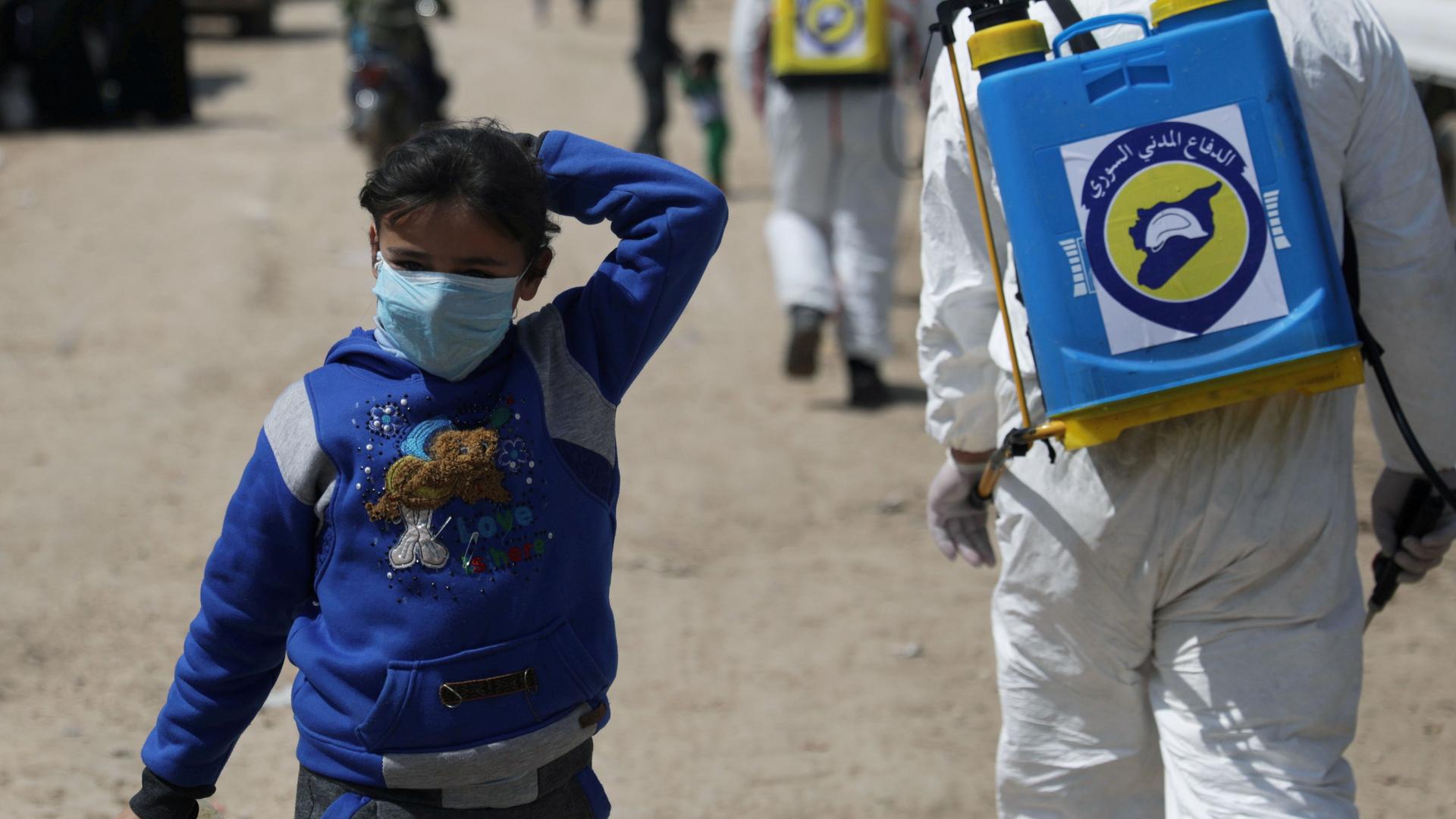People in northeast Syria are in desperate need of help. Aid groups can’t get to them.
When Al Yarubiyah border crossing was closed in January, 1.4 million Syrians were cut off from outside help, aid groups say.
Al Yarubiyah connects northeastern Syria with northern Iraq. It was one of five official border crossings to get humanitarian aid into northern Syria.
Related: US targets Assad govt and backers with toughest sanctions yet against Syria
But last December, a vote at the UN Security Council effectively closed several of those crossings. The decision came after Russia, a close ally of the Syrian government, and China, vetoed a resolution to keep aid flowing through these crossings.
“They allowed only these two border crossings to continue to [the] northwest and they stopped the other border crossing to the south from Jordan and to the east from Iraq.”
“They allowed only these two border crossings to continue to [the] northwest and they stopped the other border crossing to the south from Jordan and to the east from Iraq,” explained Dr. Zaher Sahloul, head of MedGlobal, a medical nongovernmental organization that runs operations inside Syria.
Last week, Sahloul’s organization, along with 20 other aid agencies, published an open letter urging the UN Security Council to reopen the Al Yarubiyah crossing. The resolution that led to its closing expires on July 10.
“The crossing was closed last January, with fatal consequences,” the letter said. “At a time when coronavirus is spreading, only 31% of healthcare facilities that were previously supported through Al Yarubiyah received medical supplies. 11 health facilities are at risk of closing down.”
“Basically we wanted to pressure one party — Russia. But usually, China is linked to Russia on these issues, too. We wanted to pressure them to reconsider their decision.”
“Basically we wanted to pressure one party — Russia,” said Sahloul. “But usually, China is linked to Russia on these issues, too. We wanted to pressure them to reconsider their decision.”
Sahloul said getting food and aid to that part of Syria has been a huge challenge.
Related: Syria’s first family is caught in a feud
Many of the people there have already fled their homes in other parts of the country, he said. They are running short on food and medical supplies. Baby milk, meat, fruits and vegetables are becoming luxuries, Sahloul said.
This week, David Beasley, the head of the World Food Programme, told The Associated Press that more people will die if nothing is done.
“Of a nation of 20 million people,” he said, “9.3 million people are going to bed hungry, food insecure, every day, every night in Syria. Now, what’s also bad is a million of those, they don’t know where they’re going to get their next meal. They’re literally on the brink of starvation.”
With most borders closed, most aid must go through the government in Damascus.
Sahloul said this is problematic because the Syrian government is known to distribute — or withhold — humanitarian aid as a political weapon.
Related: Trump denies knowledge of Russian bounties in Afghanistan
“We had patients who died because of the government not allowing UN shipment for dialysis patients in Ghouta and other places, and we don’t want to have patients unnecessarily dying because of this bottleneck,” he said.
The Syrian mission to the UN did not respond to The World’s request for comment.
Conditions inside Syria were tough before the border closings. But now, they’re getting worse.
The Syrian economy is in free fall. New US sanctions have gone into effect. And then, there is the pandemic.
“The work here is very difficult,” said Dr. Sherwan Bery, a physician with the Kurdish Red Crescent in northeastern Syria.
Bery has been working there for the past eight years and said since the Al Yarubiyah border closed, medical supplies dropped to half. Now, he is worried about a potential outbreak of the coronavirus in displacement camps. So far, a handful of cases have been reported, and Bery said aid groups are unprepared.
“We are lacking a lot of equipment — a lot of personal protection equipment that we need for COVID[-19] at least. And I can say we are lucky so far that we didn’t face a lot of cases here.”
“We are lacking a lot of equipment — a lot of personal protection equipment that we need for COVID[-19] at least. And I can say we are lucky so far that we didn’t face a lot of cases here,” he said.
Meanwhile, this week, the European Union hosted an aid conference to raise money to help with the Syrian refugee crisis.
Related: Petraeus: ‘We were looking for this kind of activity’ from Russia
Officials from 60 countries and NGOs came together over a somewhat patchy video call.
In the end, they pledged about $8 billion in humanitarian aid, but that’s roughly $2 billion short of what they offered last year.
Sherwan Bery, the doctor in northeastern Syria, said he is hoping the security council votes to reopen the border.
Lives depend on it, he said.
